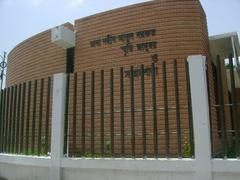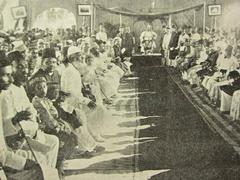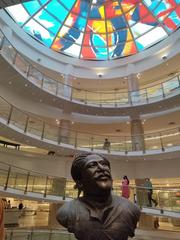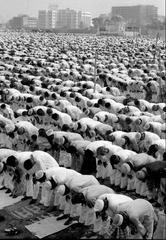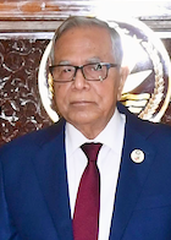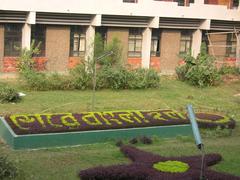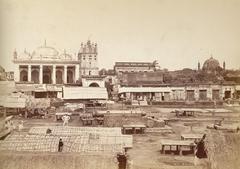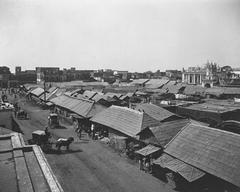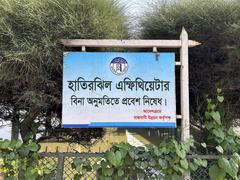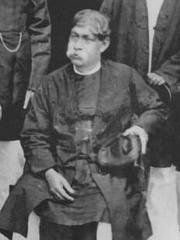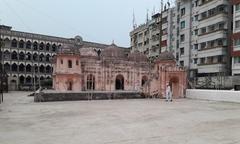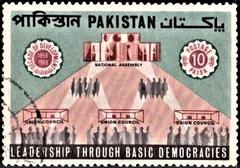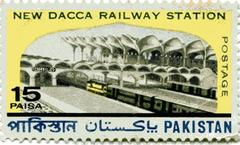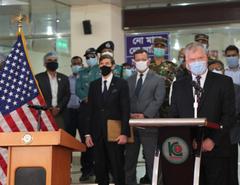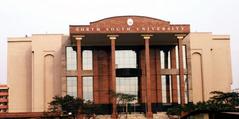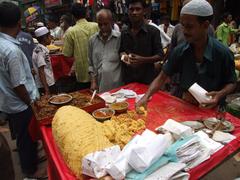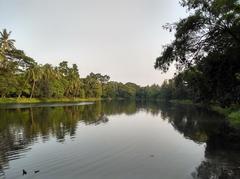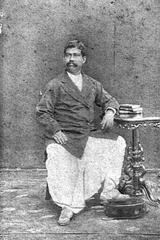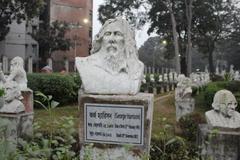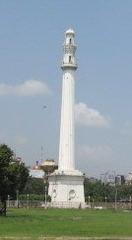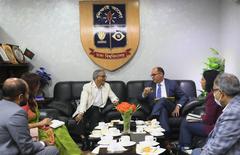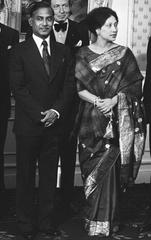Nazrul Institute Visiting Hours, Tickets, and Dhaka Historical Sites Guide
Date: 04/07/2025
Introduction
Nestled in the cultural heart of Dhaka, the Nazrul Institute stands as a vital institution dedicated to preserving and promoting the life and legacy of Kazi Nazrul Islam, Bangladesh’s revered National Poet. Established in the post-independence era, the Institute honors Nazrul’s revolutionary contributions to Bengali literature, music, and social thought, serving as a dynamic hub for research, cultural programming, and public education. This comprehensive guide provides detailed information on visiting hours, tickets, accessibility, and practical tips, along with insights into the Institute’s historical and cultural significance among Dhaka’s historical sites (Banglanews24; BSS News; Prothom Alo).
Table of Contents
- Introduction
- Origins and Establishment of the Nazrul Institute
- Legal Foundation and Governance
- Mission and Core Activities
- Cultural and National Significance
- Evolution and Modernization
- Visiting the Nazrul Institute: Practical Information
- Visitor Engagement and Public Access
- Frequently Asked Questions (FAQ)
- Conclusion
- References
Origins and Establishment of the Nazrul Institute
The Nazrul Institute in Dhaka was founded in the wake of Bangladesh’s independence to celebrate and safeguard the works of Kazi Nazrul Islam, whose activism and artistry were instrumental in shaping Bengali identity. Recognized officially as the National Poet in 1972, Nazrul’s arrival in Dhaka from Kolkata marked the beginning of a new era for his legacy. The establishment of the Institute responded to widespread public demand to preserve his manuscripts, musical notations, and rare recordings, while fostering research and education (Banglanews24).
Legal Foundation and Governance
The Nazrul Institute operates under the Kabi Nazrul Institute Act, 2018, amended in 2022 to strengthen its governance and expand its mandate (BSS News). Governed by a trustee board chaired by Nazrul’s granddaughter, Khilkhil Kazi, and including prominent scholars and cultural representatives, the Institute remains rooted in expert leadership and family heritage. This structure ensures the Institute’s fidelity to its mission and responsiveness to contemporary cultural needs.
Mission and Core Activities
The Institute’s mission encompasses preservation, research, education, and cultural promotion:
- Archiving and Preservation: Maintaining a comprehensive archive of Nazrul’s manuscripts, letters, original musical notations, and rare audio-visual recordings.
- Research and Publication: Publishing critical editions, annotated collections, and academic studies, and collaborating with universities.
- Music and Performance: Serving as custodian of Nazrul Sangeet, organizing musical performances, workshops, and training for emerging artists.
- Educational Outreach: Hosting seminars, lectures, and exhibitions for students and the wider public (BSS News).
Cultural and National Significance
Nazrul’s poetry and songs championed justice, religious harmony, and resistance against oppression, inspiring the Bengali people during pivotal historical moments, including the anti-colonial movement and the Liberation War. The Institute actively participates in national celebrations, such as Nazrul Jayanti, and commemorates milestones that connect Nazrul’s message to contemporary movements (BSS News). The Institute’s impact extends beyond Bangladesh through collaborations and international cultural events, reinforcing Nazrul’s global appeal.
Evolution and Modernization
Through legislative reforms and technological investment, the Institute has expanded its digital presence, making Nazrul’s works accessible worldwide. Its website and digital archives support global research and engagement, while leadership by renowned scholars and musicians ensures that programming remains innovative and relevant (BSS News).
Visiting the Nazrul Institute: Practical Information
Visiting Hours
- Open: Saturday to Thursday, 9:00 AM to 5:00 PM
- Closed: Fridays and public holidays
- Note: Hours may extend during major events. Always verify on the official website.
Tickets and Admission
- General Admission: Free of charge for museum, library, and exhibitions.
- Special Events: May require tickets or registration; check event details in advance.
Accessibility
- Wheelchair Access: The Institute is wheelchair accessible and offers facilities for visitors with disabilities.
- Support: Contact the Institute for specific accessibility needs ahead of your visit.
Guided Tours and Special Events
- Guided Tours: Available in Bengali and English upon prior request. Ideal for groups or academic visits.
- Events: Regularly hosts concerts, workshops, seminars, and exhibitions. See the event calendar for updates.
Location and Transport
- Address: Road 28, Dhanmondi, Dhaka (Official Website)
- Transport: Easily accessible by rickshaw, taxi, ride-sharing apps, and public bus. Limited parking is available.
Photography
- Permitted: In most areas, except where sensitive artifacts are displayed.
- Guidelines: Always follow staff instructions and posted signs.
Visitor Engagement and Public Access
The Institute offers vibrant public programming, including:
- Museum Tours: Explore Kabi Bhaban, Nazrul’s former residence, displaying his artifacts and manuscripts (The Daily Star).
- Library Access: Over 1,200 Nazrul songs and 475+ books are available for study.
- Nazrul Geeti Archive: Listen to rare recordings and learn through training workshops.
- Cultural Events: Participate in annual celebrations like Nazrul Jayanti and special concerts (The Daily Star).
- Publications and Souvenirs: Purchase books, music albums, and memorabilia.
Frequently Asked Questions (FAQ)
Q: What are the Nazrul Institute’s visiting hours?
A: Open Saturday to Thursday, 9:00 AM to 5:00 PM. Closed on Fridays and public holidays.
Q: Is there an entry fee?
A: General admission is free. Special events may require tickets.
Q: Are guided tours available?
A: Yes, in Bengali and English, by prior arrangement.
Q: Is the Institute accessible for visitors with disabilities?
A: Yes, with wheelchair access and visitor support.
Q: Can I take photos inside?
A: Photography is generally permitted, except in restricted areas. Ask staff for guidance.
Q: What other historical sites are nearby?
A: Nearby landmarks include the Bangladesh National Museum, Shahbagh Botanical Garden, and Dhaka University campus.
Conclusion
The Nazrul Institute stands as a beacon of Bangladesh’s cultural heritage, intertwining history, literature, music, and education. Through its meticulously preserved archives, engaging exhibitions, and vibrant events, the Institute honors the legacy of Kazi Nazrul Islam and fosters new generations of enthusiasts. Its accessible facilities, free general admission, and strategic central location make it one of Dhaka’s most enriching historical sites. Plan your visit according to the Institute’s hours, explore guided tour options, and participate in special events that celebrate Nazrul’s enduring influence.
For up-to-date information, visit the Nazrul Institute’s official website, follow their social media channels, and explore related articles on Dhaka’s historical and cultural heritage.
References
- Banglanews24 – Historical Background of the Nazrul Institute
- BSS News – Nazrul Institute Governance and Mission Updates
- BSS News – Nazrul Institute Cultural Programs and Events
- Prothom Alo – Kazi Nazrul Islam Official National Poet Recognition
- Anadolu Agency – Bangladesh Officially Recognizes Kazi Nazrul Islam as National Poet
- The Daily Star – Nazrul Concert 2025 Coverage
- Official Nazrul Institute Website
- Bangladesh Ministry of Cultural Affairs
- Scribd: BRACU Architecture
- Wikipedia – Kabi Nazrul Institute
- Banglapedia – Nazrul Institute
- BD Pratidin – Nazrul Concert
- UNB – Nazrul Concert Rescheduled
